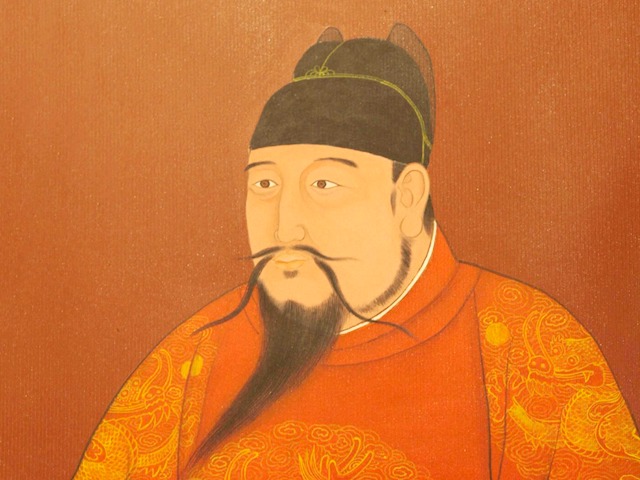In 1402, the third emperor of the Ming Dynasty who named Zhu Di finally snatched the throne from his nephew after four years of combat. When Zhu Di’s army occupied the capital of the Ming Dynasty, his nephew disappeared.
Looking back at Zhu Di’s rebellion, his success was inevitable. If you are very familiar with the history of the Ming Dynasty, then you will find that a series of factors led Zhu Di to success after Zhu Yuanzhang established the Ming Dynasty.
The reason why Zhu Di defeated Jianwen Emperor
First, Zhu Di was the fourth of Zhu Yuanzhang’s 26 sons. His personality was very similar to his father, and Zhu Yuanzhang deeply loved him. But according to the rule of succession in ancient China, only the eldest son could be the successor of the emperor.
To avoid the struggle among the sons and help his formal successor named Zhu Biao wipe away the threat, Zhu Yuanzhang command the rest of the capable sons to lead the army to defend the frontier, which contributed Zhu Di to owning the army and laid the foundation of military power for future rebellion.

Second, compared with the Jianwen Emperor, his uncle was an outstanding general, especially liked to lead his army to fight against the enemy. When Zhu Di defended the frontier, he often led his army to fight against the Mongols. During this period, he accumulated a great deal of military experience.
Jianwen Emperor lacked military combat experience. He had no experience in personally commanding the army before he became the second emperor of the Ming Dynasty. Because of the policy of Emperor Jianwen, he was more familiar with what Confucius had said than the military.
Third, Jianwen Emperor lacked political experience and carried out the policy of weakening power too quickly, which stimulated his uncle and made him feel that if he didn’t rebel, he would be eliminated by his nephew.
If the Jianwen Emperor had been slow to implement his policy of weakening power, the outbreak of contradiction might have been avoided. Actually, he didn’t do that.
Fourth, Jianwen Emperor lacked experienced generals. His grandfather enabled descendants to control the situation effectively, personally took many measures to eliminate a large number of merits with outstanding military talent, which result in generals who survived were incompetent.
Under such conditions, once the imperial rebellion broke out, though Jianwen Emperor had a large army, he lacked an outstanding general. Therefore, he was already at a disadvantage when it came to a leader with exceptional military qualities like Zhu Di.
Fifth, Zhu Di had the full support of his family. Zhu Di was not fighting alone, but his whole family was struggling. When he was in a dangerous situation, his son, especially Zhu Gaoxu, had been save him more than once.
Zhu Di’s wife and eldest son, on the other hand, were in charge of logistics. When Zhu Di fought, they managed Peiping very well. Even if Zhu Di was temporarily defeated, he could still have an escape route.
In Conclusion
The struggles of the power of the ancient Chinese emperors is fierce. Jianwen Emperor was the nephew of Zhu Di when the nephew wanted to eliminate his uncle, and Zhu Di chose to fight back. As a result, Zhu Di became the third emperor of the Ming Dynasty, and Jianwen Emperor ended his career forever.




